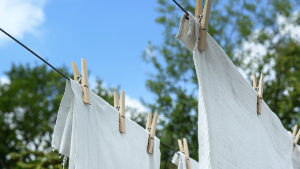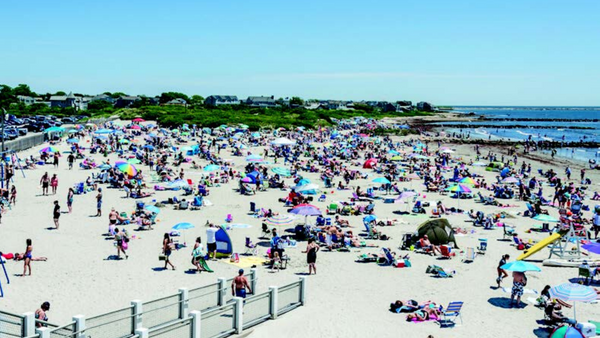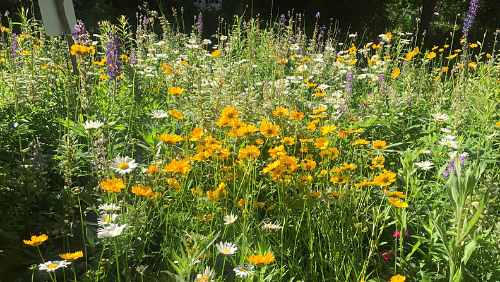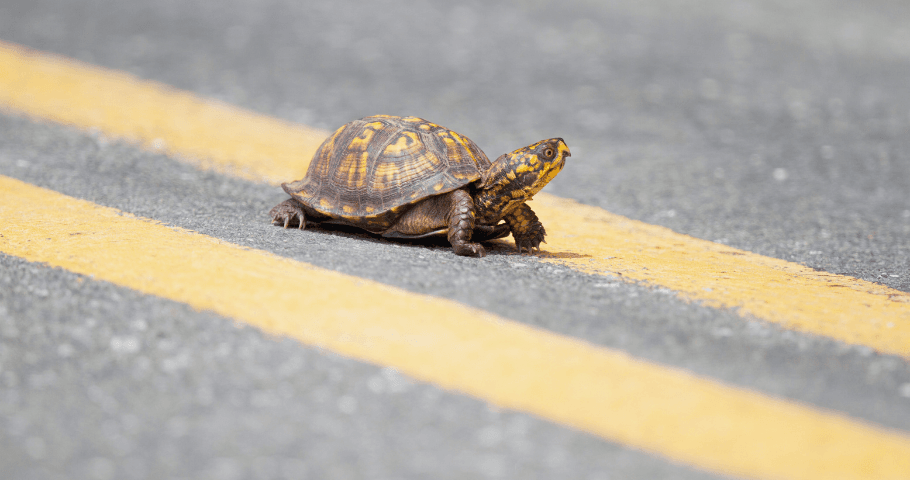
July 2020
The monthly Audubon Eagle Eye Advocacy Updates will provide you with simple actions you can take to help foster a cleaner, healthier planet along with local and national environmental news. Advocacy to protect birds and wildlife is a top Audubon priority and this work goes beyond testifying on their behalf on Smith Hill. Year round, we are working with our community partners and Rhode Island leaders to ensure the environment is a priority. These updates will keep you informed and ready to take action when the legislative session is upon us. As the newsletter continues, we are very interested in your suggestions and questions. Please send them to Audubon Senior Director of Policy Meg Kerr at mkerr@asri.org.
Sign up to get the Audubon Eagle Eye Advocacy Update in your inbox!
Tips for a More Sustainable Summer
Summer time. Beach time. Rhode Island fun time is here! Below are a few ideas for “greening” your favorite time of the year.

- Eat seasonal and local and pile on the veggies! Rhode Island has a lot of farmers markets where fresh, locally grown produce can be found. You can find a list of locations at the Farm Fresh RI web site.
- Unplug and get outside! One thing the pandemic has taught us is how important nature is to our happiness and well-being. Audubon’s wildlife refuges have been a popular destination throughout the lock down. While the weather is warm and inviting, unplug from your computer and your phone and head outside for fresh air and sunshine.
- Stay hydrated with a reusable water bottle. We all need to keep drinking water during these hot days. Remember to keep your water bottle filled and bring it with you when you head outdoors.
- Air dry your laundry. Save money and energy by hanging your clean, wet clothes outside to dry. If you don’t have a clothes line, you can easily make one by stringing a line between a couple of trees. If you live in an apartment and don’t have a yard, you can use a clothes rack and put it out on a sunny porch.
- Close your shades to cool your house naturally. It is getting hot and we are spending a lot of time at home. Before you spring for the air conditioning, consider a more sustainable option. You can keep the temperature down in your home by opening windows at night to let in the cooler air, then closing them first thing in the morning and lowering your shades to block the hot sun and take advantage of your house’s insulation. If your house is not well insulated, you can crack the windows during the day to create a cross-breeze.
Advocacy
Please reach out to your legislators and ask them to support the following items in the 2021 budget:
- The $64 million 2020 Beach, Clean Water and Green Bond invests in our state beaches and parks, outdoor recreation, farmland and forested land, water quality and community resilience. When passed by the legislature, the bond will go to the voters in November.
- Funding for the Department of Environmental Management and the Coastal Resources Management Council to continue their work to protect our land, water and health. Environmental agencies have been cut over and over again during the past years. And the 2021 budget will necessitate additional cuts. Let your representative know that maintaining strong environmental agencies is critical.
Recent News on Climate Change
New Data Reveals Hidden Flood Risk Across America
The federal government’s flood maps are not keeping up with the risks facing property owners due to climate change.
Things with Wings
While we are all carefully tucked away, social distancing, and not meeting in person, amazing content is being developed on-line that we can take advantage of. My husband is slowly transforming our yard into a pollinator garden. He got started by taking a class from the Xerces Society. If you want to learn about creating a pollinator garden, Xerces is now offering a free webinar series over this summer. Check it out!
Audubon at Home
Audubon’s educators have been busy creating wonderful on-line content for the young people in your life. Audubon at Home Week 10 is all about pollinators – there are crafts and activities on beneficial insects for you and your family to enjoy. And check out the other weekly nature themes containing fun activities for all ages.





















